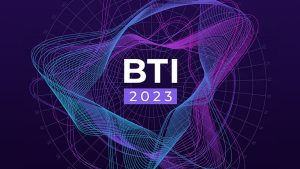Challenge
As part of the modernisation and digitalisation of the railway network in Germany, our client, a global railway player, needed to increase its human resources and knowledge capacity, especially for signalling projects. However, they were also dealing with numerous suppliers and individual contractors, requiring a lot of effort to train and retain talent in key railway skills. There was always a risk that when an individual contractor terminated their assignment, the knowledge they had accumulated would disappear. The client had to address a plurality of challenges related to human resources on upcoming or new projects.
Solution
Having worked for this client for years and with vast expertise in rail projects, Expleo was always a strong engineering partner for the client’s existing and future signalling projects in Germany. As a result, we have been nominated to create a dedicated engineering service centre within our own organisation to support our long-term cooperation and solve the skills and staffing problems affecting our client. The Head of our engineering service centre provides the client with a single point of contact and ensures the highest standard of quality is implemented throughout.
A clear communication structure is in place, which includes regular meetings at different levels (technical, steering, and strategic committees); structured reporting with KPIs to track status and improvement; and shared services (competency, quality, and project management) tailored for the client and used within the service centre.
The core activities offered within the centre include systems, software, and test engineering for electronic interlocking and electrical project planning for relay interlocking and ETCS L1 field elements.

Outcome
Going forward, the specific know-how developed for the client can be kept within the Expleo service centre on a long-term basis by spreading knowledge throughout the whole team.
This reduces the ‘key person’ risks: an individual with crucial skills or insights who is no longer available due to illness, holiday, departure from the organisation, etc. Continuous improvement and upskilling are achieved through regular lessons, training on how to optimise working processes, etc. The centre also provides greater flexibility, scalability, and agility in terms of the deployment of human resources: by adding new engineers on request, the service centre can help the client undertake new projects or activities.
Furthermore, depending on the project’s needs, the skills’ mix of the team involved can be flexibly adapted at short notice. Finally, the service centre creates the right environment to transfer current time and material business into fixed price work packages. Under this scenario, Expleo can take over the overall responsibility of the project’s results independently, within the engineering service centre, thus lowering risks on the client’s side and reducing its organisational effort.
Benefits
- A strong engineering partner for the client’s signalling projects in Germany
- Scalability and agility: ability to ramp-up required demand for staff at short notice
- Knowledge retention, continuous improvement, enhanced skills mix
- Less risks involved due to the transition to work packages
It takes years to develop strong railway knowledge. The engineering services centre we created aims to develop and retain key skills for the client’s benefits amid a war for talent.
Markus Wenhart
Account Manager Transportation DACH, Expleo Group





